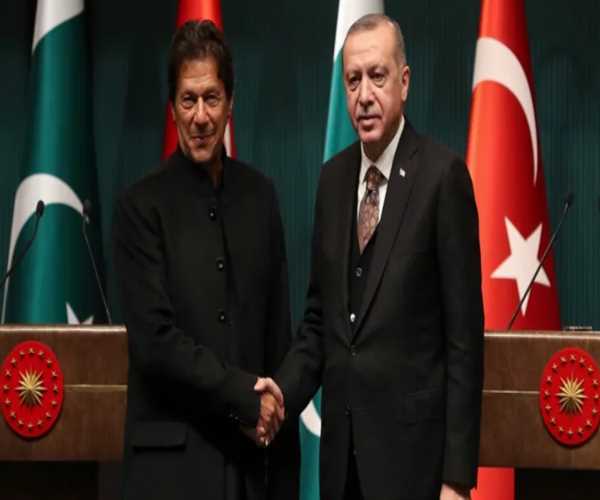The question of why Pakistan does not buy weapons from Turkey is one that has long been asked by many. It is a question that is complicated and has multiple layers to it.
To understand why Pakistan does not buy weapons from Turkey, it is important to understand the history between the two countries.
The two countries have had a long and complex relationship. Pakistan and Turkey were allies during the Cold War and had strong military ties during this period. However, the relationship between the two countries has been strained in recent years due to differences in regional politics and the increasing presence of Islamist political parties in both countries.
Another factor to consider is the economic relationship between the two countries. Turkey is a major exporter of weapons, but the cost of purchasing these weapons is often very high for Pakistan. This is because Turkey’s weapons are often more advanced and sophisticated than those that Pakistan can typically afford. Furthermore, Turkey is a member of the NATO alliance and has access to more advanced technology than Pakistan. As such, it can be difficult for Pakistan to acquire the same sorts of weapons that Turkey is able to acquire.
Finally, it is important to consider the political relationship between the two countries. Pakistan and Turkey have had a strained relationship in recent years due to differences in regional politics and the presence of Islamist political parties in both countries. This has led to a lack of trust between the two countries and makes it difficult for Pakistan to purchase weapons from Turkey.

So why doesn’t Pakistan buy weapons from Turkey? There are several reasons.
The first and foremost reason is cost. Turkey is a relatively small arms supplier compared to the United States and Russia, and the prices for Turkish military equipment are not competitive with those of the other two. Moreover, the Turkish arms industry is not as advanced as those of the other two and is unable to produce the sophisticated equipment that Pakistan needs.
Another factor is geopolitical. Pakistan and Turkey are both members of the Organization of Islamic Cooperation (OIC), but their views on certain domestic and foreign policy issues have often been at odds. This has made it difficult for the two countries to cooperate militarily, as they do not share the same strategic objectives.
Finally, Pakistan’s close relationship with the United States has meant that it is more likely to buy American weapons than those from Turkey. The US has long been Pakistan’s largest arms supplier and its equipment is considered to be of a much higher quality and reliability than Turkish weapons.
Despite these obstacles, the two countries have continued to enhance their cooperation in other areas, such as trade, infrastructure development, and technology transfer. In recent years, they have even signed agreements on military-technical cooperation, which could potentially lead to increased arms sales from Turkey to Pakistan in the future.
For now, however, Pakistan remains largely reliant on the United States for its military needs, and Turkish weapons are unlikely to feature prominently in Pakistan’s defense budget in the near future.
In conclusion, there are multiple factors that play into why Pakistan does not buy weapons from Turkey. These include the complicated history between the two countries, the economic relationship between the two countries, and the political relationship between the two countries. All of these reasons make it difficult for Pakistan to purchase weapons from Turkey.